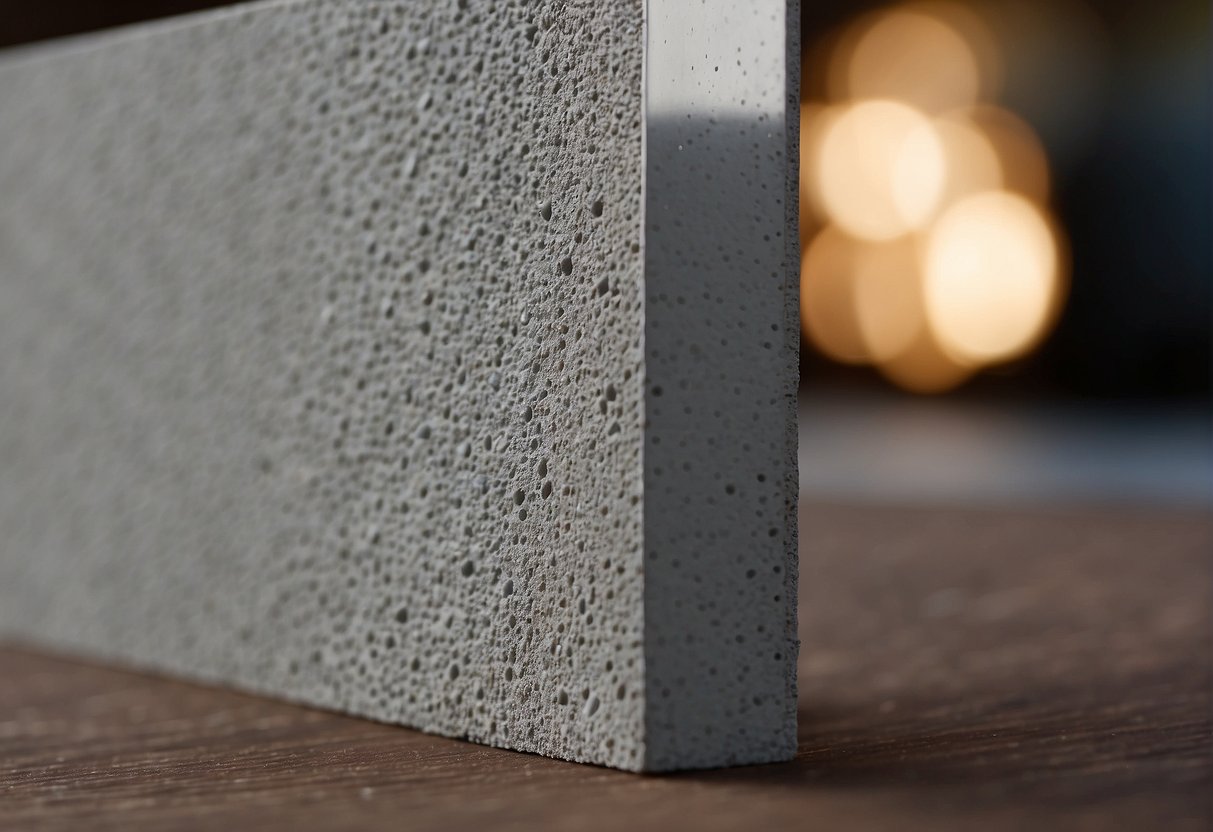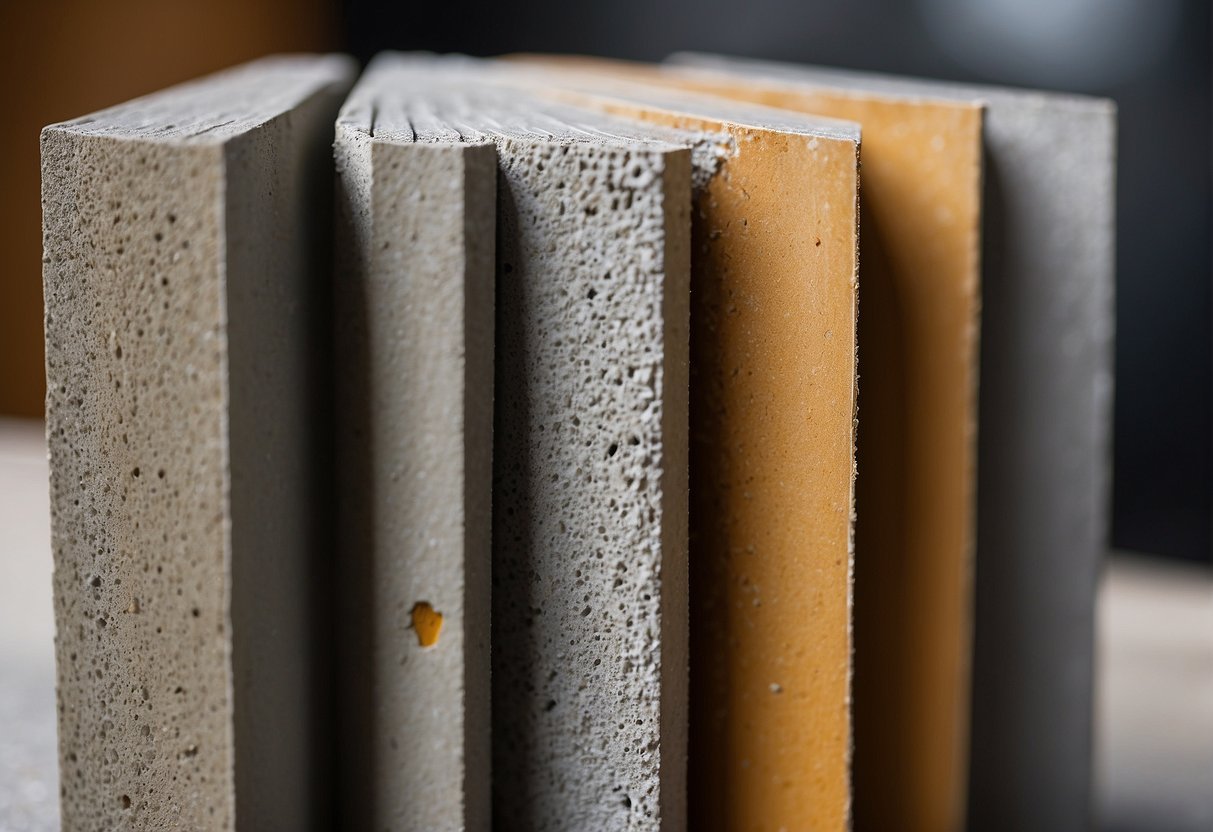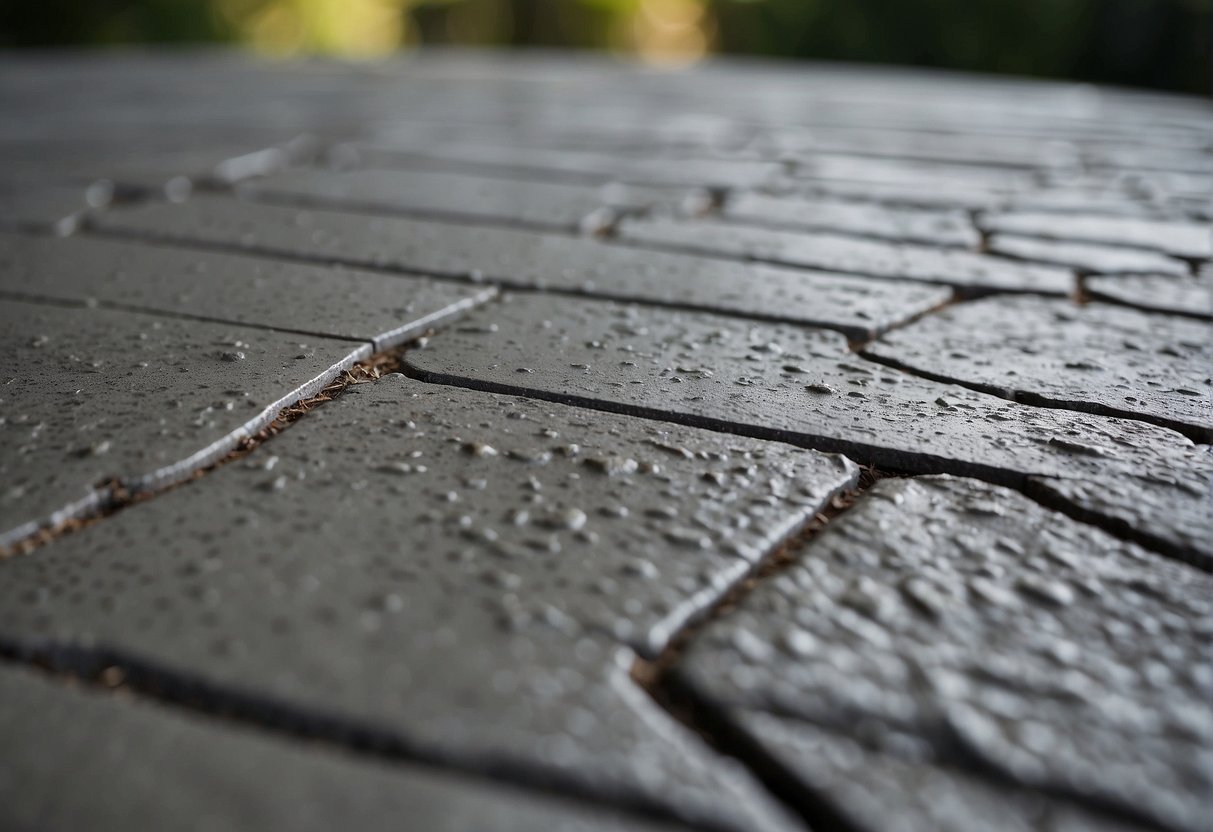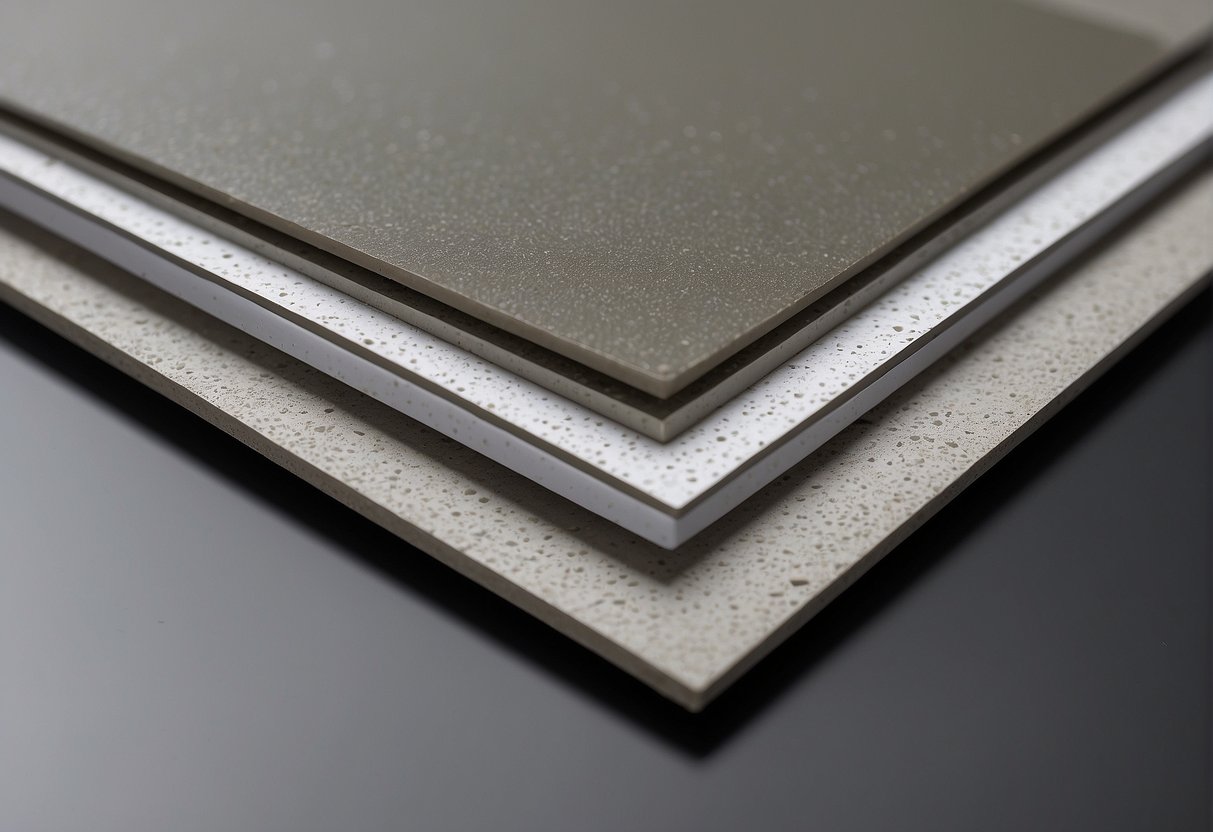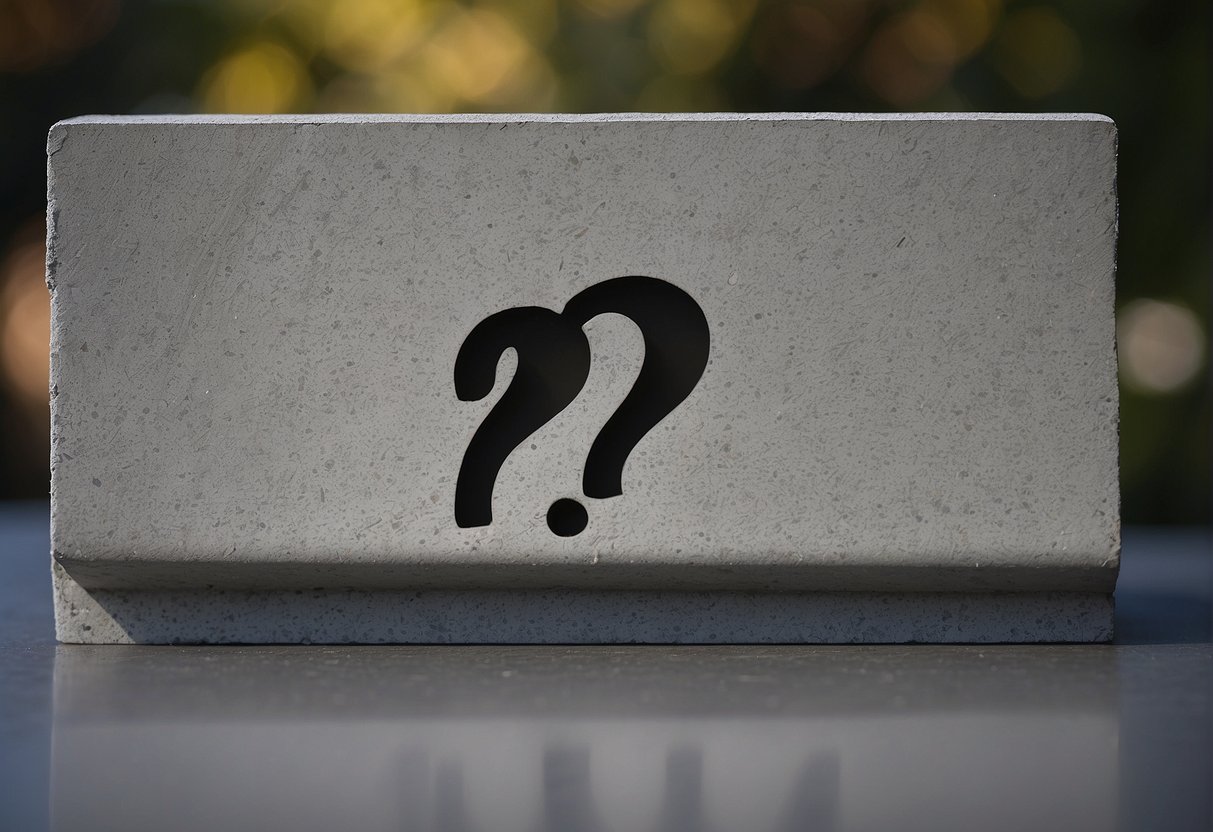Cement board and DensShield are two popular tile backer options used in bathrooms and other moisture-prone areas. Both are designed to provide a stable and moisture-resistant surface for tile installation, but they have some differences. In this article, I will compare cement board vs DensShield, highlighting their advantages, challenges, installation processes, use cases, and regulatory compliance.
When it comes to tile installation, the choice of backer board is crucial. Cement board is the most common and widely-known backer board. It is readily available and relatively inexpensive, making it a popular choice among contractors and DIYers. On the other hand, DensShield is a newer product made of a water-resistant gypsum core with a fiberglass mat on both sides. It offers some unique advantages over cement board, such as easier installation, better sound insulation, and reduced weight.
Comparing Cement Board and DensShield can help you make an informed decision about which product is best suited for your project. In the following sections, I will provide a detailed comparison of these two tile backer options, covering their advantages, challenges, installation processes, use cases, and regulatory compliance.
Comparing Cement Board and DensShield
When it comes to choosing the best tile backer for your project, two of the most popular options are cement board and DensShield. Both materials have their unique characteristics that make them suitable for different applications. In this section, I will compare cement board and DensShield based on their material composition, water and moisture resistance, and installation and applications.
Material Composition
Cement board is made of cement particles and reinforcing fibers that are compressed and formed into sheets. On the other hand, DensShield is composed of a gypsum core that is encased in a fiberglass mat on both sides. The core of DensShield resists moisture penetration and mold growth, making it an excellent choice for high humidity areas such as showers.
Water and Moisture Resistance
Both cement board and DensShield are water-resistant, but DensShield has an added advantage of being a moisture barrier. This means that it can prevent moisture from penetrating through the tile backer and reaching the substrate. Cement board, on the other hand, is not fully waterproof and may require an additional moisture barrier before tiling.
Installation and Applications
Cement board is a heavy material that requires special tools to cut and install. It is also more brittle than DensShield, which can make it prone to cracking during installation. DensShield, on the other hand, is lightweight and easy to cut, making it more convenient to install. It is also suitable for a wide range of applications, including showers, tub surrounds, and floors.
In conclusion, both cement board and DensShield have their unique characteristics that make them suitable for different applications. When choosing between the two, it is essential to consider factors such as material composition, water and moisture resistance, and installation and applications. By doing so, you can make an informed decision and choose the best tile backer for your project.
Advantages and Challenges
Durability and Performance
When it comes to durability and performance, both cement board and DensShield are excellent choices for tiling projects. Cement board is known for its high compressive strength, making it a great option for floors. On the other hand, DensShield is moisture-resistant, making it ideal for use in areas with high humidity, such as bathrooms and kitchens. Both materials are also resistant to mold and mildew, ensuring that your tiling project will last for years to come.
Cost Considerations
When it comes to cost, cement board is generally less expensive than DensShield. However, it’s important to consider the long-term benefits of each material. While cement board may be cheaper upfront, DensShield’s moisture resistance and durability may save you money in the long run by preventing water damage and the need for future repairs.
Weight and Handling
Cement board is heavier and more difficult to handle than DensShield, which can make installation more challenging. However, the weight of cement board can also make it a more stable and secure option for floors. DensShield’s lighter weight makes it easier to work with, especially when cutting and installing around corners and curves.
Overall, both cement board and DensShield have their advantages and challenges. When deciding which material to use for your tiling project, it’s important to consider factors such as cost, durability, weight, and moisture-resistance. By weighing the pros and cons of each material, you can make an informed decision that will result in a beautiful and long-lasting tiled surface.
Installation Process
Preparing for Installation
Before installing either cement board or DensShield, it is important to properly prepare the substrate. Ensure that the surface is clean, dry, and free of any debris. This will help to ensure proper adhesion and prevent any future issues.
Additionally, it is important to ensure that the substrate is structurally sound and able to support the weight of the tile installation. Any weak or damaged areas should be repaired prior to installation.
Installation Techniques
When installing cement board, it is important to use the correct fasteners and spacing to ensure proper installation. Cement board should be fastened every 8 inches on center, with a minimum of 1 inch from the edge.
DensShield, on the other hand, can be installed using a variety of methods including screws, nails, or adhesive. It is important to follow the manufacturer’s instructions for the specific installation method being used.
Both cement board and DensShield should be installed using a thinset or mortar bed, which will help to ensure proper adhesion and prevent any future cracking or movement.
Post-Installation Care
After installation, it is important to properly waterproof the installation using a waterproofing membrane. This will help to prevent any moisture from seeping through the tile and causing damage to the substrate.
Additionally, it is important to properly seal any joints or seams to prevent any future water damage. This can be done using a silicone caulk or similar product.
In conclusion, while the installation process for cement board and DensShield may differ slightly, both products require proper preparation, installation, and post-installation care to ensure a successful tile installation.
Use Cases and Suitability
When it comes to selecting the right tile backer board for a project, it is important to consider the specific use case and suitability of each product. In this section, I will discuss the use cases and suitability of cement board and DensShield for residential applications, commercial projects, and specialized areas.
Residential Applications
For residential applications such as bathroom floors, kitchen backsplashes, and shower walls, both cement board and DensShield are suitable options. Cement board is a popular choice for bathroom floors and shower walls because of its durability and moisture resistance. DensShield, on the other hand, is a good option for kitchen backsplashes because of its lightweight nature and ease of installation.
Commercial Projects
For commercial projects such as pool areas and high humidity environments, cement board is the preferred option due to its resistance to water and moisture. Cement board can also be used for ceilings and countertops in commercial settings. DensShield, on the other hand, is not recommended for commercial projects due to its limited moisture resistance.
Specialized Areas
In specialized areas such as wet areas and roofs, cement board is the recommended option due to its durability and moisture resistance. DensShield, on the other hand, is not suitable for use in these areas due to its limited moisture resistance.
In summary, when choosing between cement board and DensShield for a project, it is important to consider the specific use case and suitability of each product. Cement board is a good option for areas that require high moisture resistance, while DensShield is a good option for areas that require lightweight and easy installation.
Regulatory and Standards Compliance
As a professional in the construction industry, I understand the importance of regulatory and standards compliance. When it comes to choosing between cement board and DensShield for tiling, it’s essential to consider the compliance of both materials with the relevant codes and standards.
The International Building Code (IBC) and International Residential Code (IRC) require that materials used for tiling in wet areas should be moisture-resistant and durable. Both cement board and DensShield meet these requirements and can be used for tiling in wet areas.
Fire-rated assemblies are also a critical consideration in construction. Cement board and DensShield have different fire ratings, and it’s essential to choose the material that meets your project’s specific requirements. Cement board is a type X board and has a fire rating of one hour. DensShield, on the other hand, has a fire rating of 20 minutes.
The ASTM D3273 test method is a laboratory test that measures mold resistance. DensShield has scored a 10, which is the highest level of performance for mold resistance under this test method. Cement board, on the other hand, has not been tested under this method.
When it comes to building products, it’s essential to consider the type of warranty offered. DensShield comes with a lifetime limited warranty, which guarantees that the product will be free from defects in material and workmanship when installed correctly. Cement board, on the other hand, does not come with a warranty.
Finally, it’s worth noting that ASTM C1178 is the standard specification for coated glass mat water-resistant gypsum backing panel. Both cement board and DensShield comply with this standard.
In summary, both cement board and DensShield comply with the relevant codes and standards for tiling in wet areas. However, when it comes to fire-rated assemblies, mold resistance, and warranty, DensShield has some advantages over cement board.
Frequently Asked Questions
What are the cost differences between cement board and DensShield?
The cost of cement board and DensShield varies depending on the brand, size, and thickness. In general, DensShield is slightly more expensive than cement board. However, the price difference is usually negligible and should not be the only factor considered when choosing between the two.
Which is more suitable for bathroom installations, cement board or DensShield?
Both cement board and DensShield are suitable for bathroom installations. However, DensShield is specifically designed to resist moisture and mold growth, making it an excellent choice for wet areas like bathrooms.
Can DensShield be used in shower areas or is cement board the better option?
DensShield is a great option for shower areas because it is highly moisture-resistant and can withstand exposure to water. However, cement board is also a suitable option for shower areas. The choice between the two will depend on personal preference and the specific needs of the project.
How does DensShield Tile Backer compare to traditional cement board in terms of durability?
DensShield Tile Backer is highly durable and can withstand exposure to moisture and mold growth. It is also resistant to impact and abrasion. Traditional cement board is also durable but may not be as moisture-resistant as DensShield. Both options are suitable for tiling projects and should last for many years with proper installation and maintenance.
Is additional waterproofing necessary when using DensShield in wet areas?
DensShield is designed to be moisture-resistant and does not require additional waterproofing when used in wet areas. However, it is important to ensure that the product is installed correctly and that all seams and edges are properly sealed to prevent moisture from penetrating.
Are there any alternatives that outperform cement board for tiling projects?
There are several alternatives to cement board and DensShield that may outperform them for tiling projects. Some popular options include Schluter Kerdi Board, Wedi Board, and HardieBacker. These products are highly moisture-resistant and can provide a more durable and long-lasting surface for tiling projects. However, they may also be more expensive than cement board and DensShield.

Hi, I’m Sal Muller of Tooltrip.com. My DIY experience led me to understand essential power tools for home projects. Tooltrip.com guides enthusiasts and professionals in choosing right tools for any job. I provide concise top tool reviews for easier, efficient DIY.

